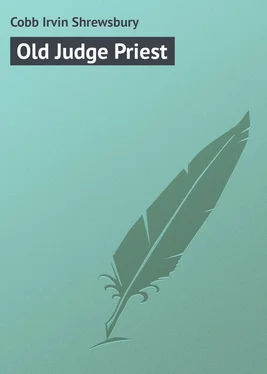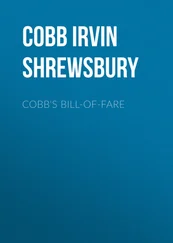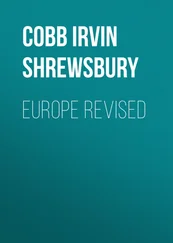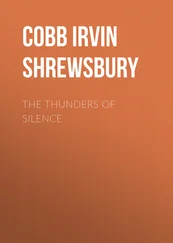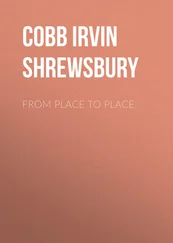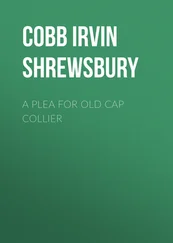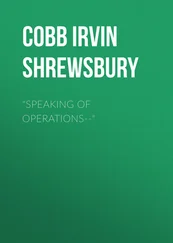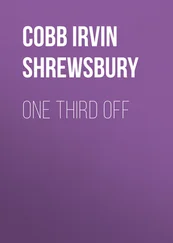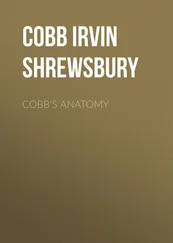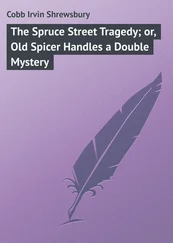Irvin Cobb - Old Judge Priest
Здесь есть возможность читать онлайн «Irvin Cobb - Old Judge Priest» — ознакомительный отрывок электронной книги совершенно бесплатно, а после прочтения отрывка купить полную версию. В некоторых случаях можно слушать аудио, скачать через торрент в формате fb2 и присутствует краткое содержание. Жанр: foreign_prose, на английском языке. Описание произведения, (предисловие) а так же отзывы посетителей доступны на портале библиотеки ЛибКат.
- Название:Old Judge Priest
- Автор:
- Жанр:
- Год:неизвестен
- ISBN:нет данных
- Рейтинг книги:5 / 5. Голосов: 1
-
Избранное:Добавить в избранное
- Отзывы:
-
Ваша оценка:
- 100
- 1
- 2
- 3
- 4
- 5
Old Judge Priest: краткое содержание, описание и аннотация
Предлагаем к чтению аннотацию, описание, краткое содержание или предисловие (зависит от того, что написал сам автор книги «Old Judge Priest»). Если вы не нашли необходимую информацию о книге — напишите в комментариях, мы постараемся отыскать её.
Old Judge Priest — читать онлайн ознакомительный отрывок
Ниже представлен текст книги, разбитый по страницам. Система сохранения места последней прочитанной страницы, позволяет с удобством читать онлайн бесплатно книгу «Old Judge Priest», без необходимости каждый раз заново искать на чём Вы остановились. Поставьте закладку, и сможете в любой момент перейти на страницу, на которой закончили чтение.
Интервал:
Закладка:
Again Professor Reese cleared his throat, then spoke the name that was written in faded letters at the top of the roll – the name of him who had been their first captain and, at the last, their brigade commander.
“Died the death of a hero in an effort to save others at Cottonwood Bar, June 28, 1871,” said Judge Priest; and he saluted, with his finger against his forehead.
One by one the old school-teacher called off the list of commissioned and noncommissioned officers. Squire Futrell, who had attained to the eminence of a second corporal’s place, was the only one who answered for himself. For each of the others, including Lieutenant Garrett – he of the game leg and the plantation in Mississippi – somebody else answered, giving the manner and, if he remembered it, the date of that man’s death. For, excepting Garrett, they were all dead.
The professor descended to the roster of enlisted men:
“Abner P. Ashbrook!”
“Died in Camp Chase as a prisoner of war.”
“G. W. Ayres!”
“Killed at Baker’s Creek.”
“R. M. Bigger!”
“Moved to Missouri after the war, was elected state senator, and died in ‘89.”
“Reuben Brame!”
“Honourably discharged after being wounded at Corinth, and disappeared. Believed to be dead.”
“Robert Burnell!”
“Murdered by bushwhackers in East Tennessee on his way home after the Surrender.”
So it went down the long column of names. They were names, many of them, which once stood for something in that community but which would have fallen with an unfamiliar sound upon the ears of the oncoming generation – old family names of the old town. But the old families had died out or had scattered, as is the way with old families, and the names were only pronounced when Company B met or when some idler, dawdling about the cemetery, deciphered the lichen-grown lines on gray and crumbly grave-stones. Only once in a while did a voice respond, “Here!” But always the “Here!” was spoken clearly and loudly and at that, the remaining twelve would hoist their voices in a small cheer.
By common consent certain survivors spoke for certain departed members. For example, when the professor came to one name down among the L’s, Peter J. Galloway, who was an incorruptible and unshakable Roman of the party of Jefferson and Jackson, blared out: “Turn’t Republikin in ‘96, and by the same token died that same year!” And when he reached the name of Adolph Ohlmann it was Mr. Felsburg’s place to tell of the honourable fate of his fellow Jew, who fell before Atlanta.
The reader read on and on until his voice took on a huskened note. He had heard “Here!” for the thirteenth time; he had come to the very bottomest lines of his roster. He called one more name – Vilas, it was – and then he rolled up his parchment and put it away.
“The records show that, first and last, Company B had one hundred and seventy-two members, all regularly sworn into the service of the Confederate States of America under our beloved President, Jefferson Davis,” stated Professor Reese sonorously. “Of those names, in accordance with the custom of this organisation, I have just called one hundred and seventy-one. The roll call of Company B, of the Old Regiment of mounted infantry serving under General Nathan Bedford Forrest, is completed for the current year.” And down he sat.
As Judge Priest, with a little sigh, settled back in his chair, his glance fell on the face of the man next him. Perhaps the old judge’s eyes were not as good as once they had been. Perhaps the light was faulty. At any rate, he interpreted the look that was on the other’s face as a look of loneliness. Ordinarily the judge was a pretty good hand at reading faces too.
“Looky here, boys!” he called out, with such emphasis as to centre general attention on the upper end of the table. “We oughter be ‘shamed of ourselves – carryin’ on this way ‘mongst ourselves and plum’ furgittin’ we had an outsider with us ez a special guest. Our new friend here is ‘bout the proper age to have seen service in the war his own se’f – mebbe he did see some. Of all the states that fought ag’inst us, none of ‘em turned out better soldiers than old Illinoy did. If my guess is right I move we hear frum Mr. Watts, frum Illinoy, on some of his own wartime experiences.” His hand dropped, with a heartening thump, on the shoulder of the stranger. “Come on, colonel! We’ve had a word from ever’body exceptin’ you. It’s your turn – ain’t it, boys?”
Before his question might be answered, Watts had straightened to his feet. He stood rigidly, his hands driven wrist-deep into his coat pockets; his weather-beaten face set in heavy, hard lines; his deep eyes fixed on a spot in the blank wall above their heads.
“You’re right – I was a soldier in the war between the States,” he said in a thickened, quick voice, which trembled just a little; “but I didn’t serve with the Illinois troops. I didn’t move to Illinois until after the war. My regiment was as good a regiment, though, and as game a regiment, as fought in that war on either side.”
Some six or eight broke generously into a brisk patter of handclapping at this, and from the exuberant Mr. Galloway came:
“Whirroo! That’s right – stick up for yer own side always! Go on, me boy; go on!”
The urging was unnecessary. Watts was going on as though he had not been interrupted, as though he had not heard the friendly applause, as though his was a tale which stood in most urgent need of the telling:
“I’m not saying much of my first year as a soldier. I wasn’t satisfied – well, I wasn’t happily placed; I’ll put it that way. I had hopes at the beginning of being an officer; and when the company election was held I lost out. Possibly I was too ambitious for my own good. I came to know that I was not popular with the rest of the company. My captain didn’t like me, either, I thought. Maybe I was morbid; maybe I was homesick. I know I was disappointed. You men have all been soldiers – you know how those things go. I did my duty after a fashion – I didn’t skulk or hang back from danger – but I didn’t do it cheerfully. I moped and I suppose I complained a lot.
“Well, finally I left that company and that regiment. I just quit. I didn’t quit under fire; but I quit – in the night. I think I must have been half crazy; I’d been brooding too much. In a day or two I realised that I couldn’t go back home – which was where I had started for – and I wouldn’t go over to the enemy. Badly as I had behaved, the idea of playing the outright traitor never entered my mind. I want you to know that. So I thought the thing over for a day or two. I had time for thinking it over – alone there in that swamp where I was hiding. I’ve never spoken of that shameful thing in my life since then – not until to-night. I tried not to think of it – but I always have – every day.
“Well, I came to a decision at last. I closed the book on my old self; I wiped out the past. I changed my name and made up a story to account for myself; but I thank God I didn’t change flags and I didn’t change sides. I was wearing that new name of mine when I came out of those woods, and under it I enlisted in a regiment that had been recruited in a state two hundred miles away from my own state. I served with it until the end of the war – as a private in the ranks.
“I’m not ashamed of the part I played those last three years. I’m proud of it! As God is my judge, I did my whole duty then. I was commended in general orders once; my name was mentioned in despatches to the War Department once. That time I was offered a commission; but I didn’t take it. I bear in my body the marks of three wounds. I’ve got a chunk of lead as big as your thumb in my shoulder. There’s a little scar up here in my scalp, under the hair, where a splinter from a shell gashed me. One of my legs is a little bit shorter than the other. In the very last fight I was in a spent cannon ball came along and broke both the bones in that leg. I’ve got papers to prove that from ‘62 to ‘65 I did my best for my cause and my country. I’ve got them here with me now – I carry them with me in the daytime and I sleep at night with them under my pillow.”
Читать дальшеИнтервал:
Закладка:
Похожие книги на «Old Judge Priest»
Представляем Вашему вниманию похожие книги на «Old Judge Priest» списком для выбора. Мы отобрали схожую по названию и смыслу литературу в надежде предоставить читателям больше вариантов отыскать новые, интересные, ещё непрочитанные произведения.
Обсуждение, отзывы о книге «Old Judge Priest» и просто собственные мнения читателей. Оставьте ваши комментарии, напишите, что Вы думаете о произведении, его смысле или главных героях. Укажите что конкретно понравилось, а что нет, и почему Вы так считаете.
